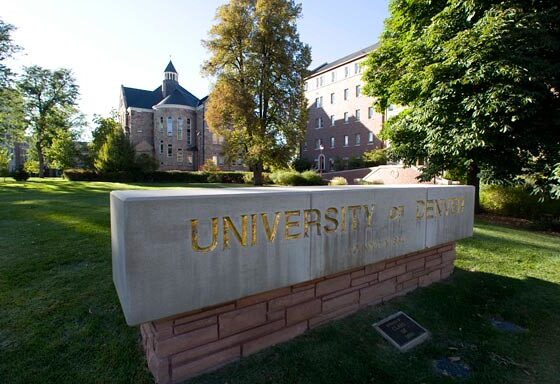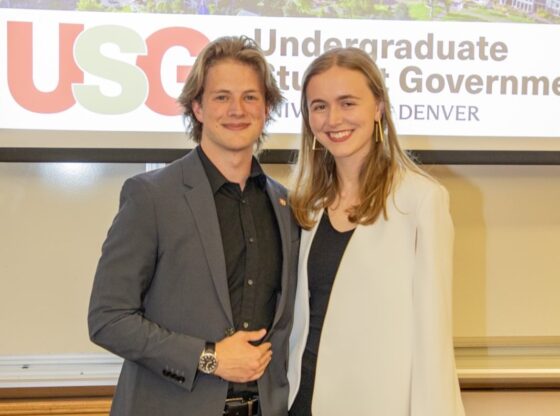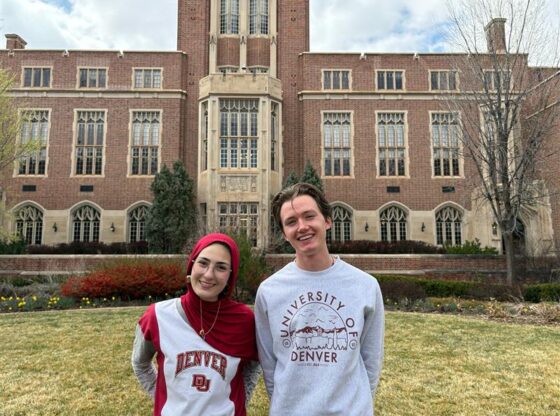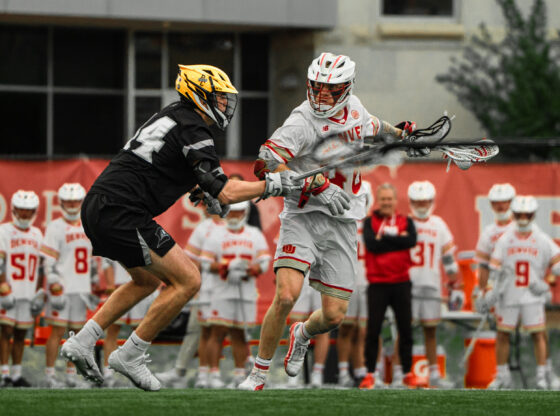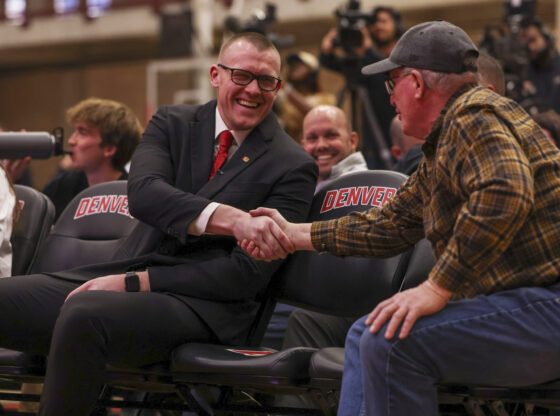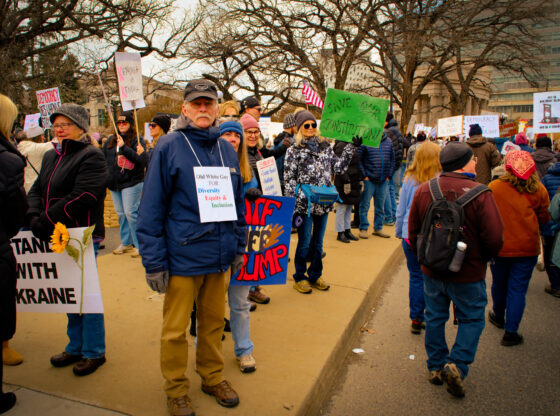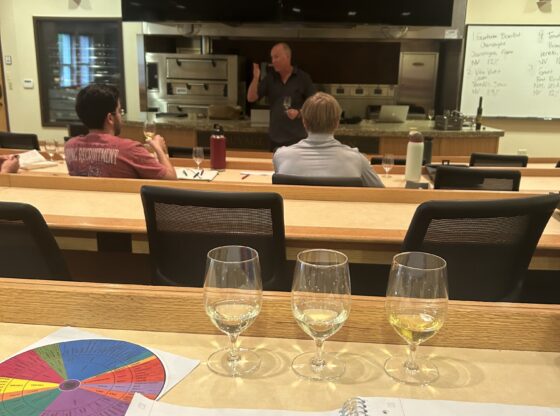David Amram can recall the New York City loft party where he first collaborated with Jack Kerouac. Kerouac had asked Amram to play music as he read his poetry.
Both spoke French. Both enjoyed the same type of art, music and literature that they felt was generally ignored by mainstream culture in the late 1950s, the beginning of the beat era Both Amram and Kerouac were responsible for the first jazz-poetry readings in New York City.
It is this friendship that has brought Amram, accomplished music composer and conductor, to Denver this week to work with Dr. Audrey Sprenger of the Department of Sociology, a documentary maker, literary critic and cartographer who often writes and teaches about the collaboration between Amram and Kerouac.
On May 10, 11 and 12, Amram will add live music and commentary to several of Sprenger’s existing teaching projects on Amram and Kerouac, as well as begin work with Sprenger on a series of new projects they are currently developing together.
On May 10 from 3-6 pm, Amram will add live commentary and music to Sprenger’s At Lilac Evening, Jack Kerouac in Denver, an academic lecture on Kerouac’s writings which were set, and in many instances actually written, in the city of Denver, most notably the novels On The Road and Visions of Cody.
Scheduled to take place in Denver’s Lower Downtown, Curtis Park and Five-Points neighborhoods, University of Denver students, staff, faculty and their guests are invited to meet at the northwest corner of Larimer and 15th St. to literally hike through these writings, as well as the cultural myths, which surround these writings. This lecture will be recorded for broadcast on Colorado Public Radio.
On May 11 from 7-9 pm, Amram will contribute words and music to Sprenger’s Names We Call America, Digging the Roots of Cool, an academic lecture on the sociological meaning of American cool. Taking place in the Towers Programming Lounge, students, staff, faculty and their guests are invited to sit-in on Amram and Sprenger’s first attempt to merge live jazz and spoken-word poetry with an academic lecture.
These two lecture/performances are Amram’s second collaboration with Sprenger. Amram also participated in Sprenger’s spring interterm class, “Jack Kerouac Wrote Here: Crisscrossing America Chasing Cool,” in which students traveled across the country to visit other places Kerouac set and wrote his novels and it is one of many activities that Amram, who will turn 75 this November, will participate in this week both on and of the University of Denver campus.
“Our hope is to strengthen the relationship of literature, music and the arts with social sciences,” said Amram in a phone interview. “Kerouac’s writing was artistic and humanistic, but was also a history and sociology lesson of what he was a part of in his life experiences.”
As Kerouac’s first music accompanist, Amram collaborated with him on the title song for the 1959 documentary film Pull My Daisy, which he also appeared in. He has composed over 100 concert works as well as composed the scores for Broadway theater, film and opera.
He was appointed the first composer-in-residence with the New York Philharmonic in 1966, and has worked with Langston Hughes, Leonard Bernstein, Willie Nelson, Arthur Miller and Charles Mingus, among others.
As a multi-instrumentalist, Amram is well known for his ability to combine jazz, Latin American, Middle Eastern, Native American and folk music from around the world. He plays the piano, percussion and numerous flutes and whistles. Most notably, he is well known for his ability to improvise lyrics in what is called scat singing, the original freestyle.
In addition to conducting operatic and symphonic music, he has also worked with students to teach them about world music. He is the only person to have won the Leo Block University Professorship at DU twice, once in 1991 and then again 2000.
Amram was born in Philadelphia in 1930, and grew up on a farm in Pennsylvania. As a child, he played and composed music. He moved to Washington, D.C. during World War II and attended George Washington University where he graduated with a degree in history.
In 1952, he was drafted to Europe where he stayed a year until he was discharged. In 1955, he moved to New York.
It was in New York that he met Kerouac. Their first ever jazz poetry readings were at the Brata Art Gallery and Circle-in-the-Square in New York City in 1957.
During the time that Amram knew him, Kerouac spoke of his love for Denver and the West, especially the “cowboy culture.”
“Denver was a small town, but it was just beautiful,” Amram said of his own experiences in Denver. “It still reminds me how amazingly beautiful nature is.”
Amram first saw Denver during the summer of 1942, when he was only 11 years old. It was that summer that he saw his first rodeo in Durango.
What Amram enjoys most about Denver is its symphony, opera, the Lamont School of Music and KUVO FM Radio.
“Two or three of the best jazz stations in the country are in Denver,” he said. “If every city had jazz stations like Denver does, jazz would be more popular.”
He feels that the hike this week will be a celebration of Denver itself. As a guest artist, he hopes to complement or add to what is already there.
“It is a very special experience to do this program,” he said. “It helps paint a picture that all places and cities develop their own culture. It’s all important and worth celebrating. Kerouac would find certain themes and motifs and would develop them into chapters. He was a reporter for a whole era. There were values of what he wrote about- values and work that’s built to last, like the mountains around the mile-high city.”
“It’s not where you came from,” he added. “It’s what you did.”




